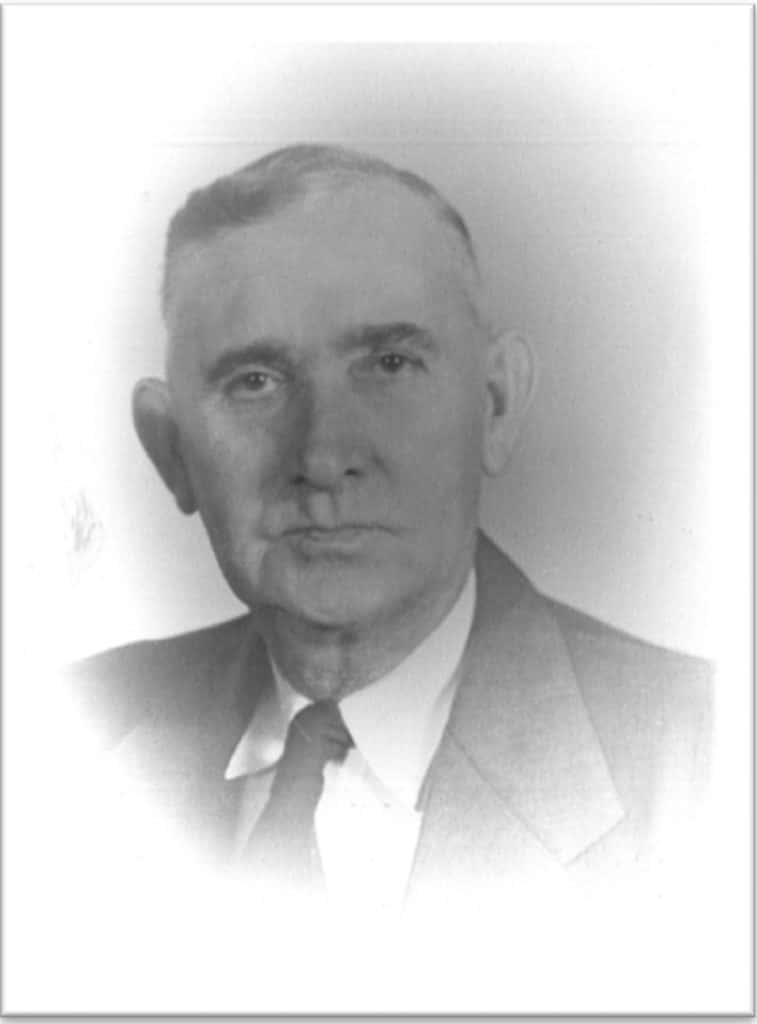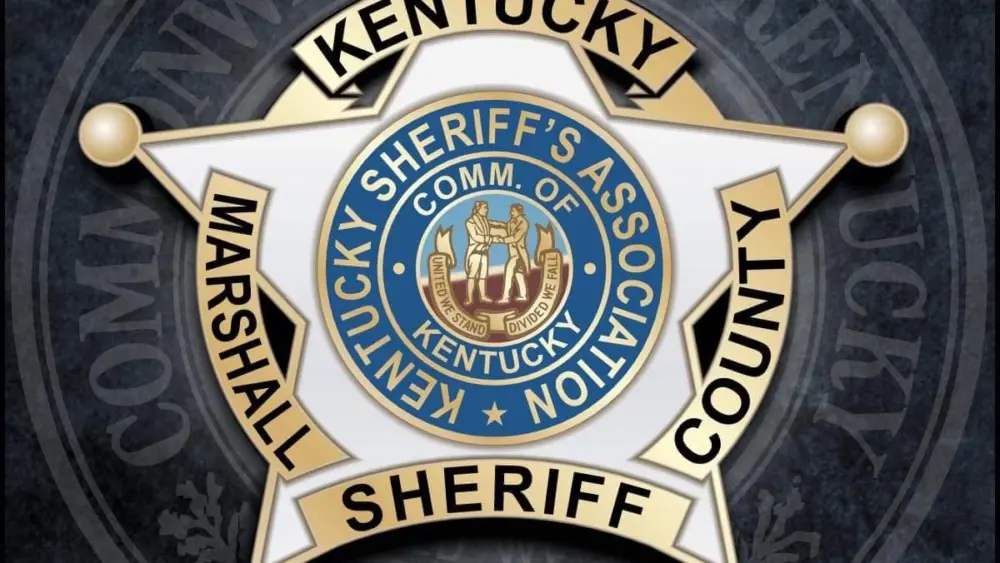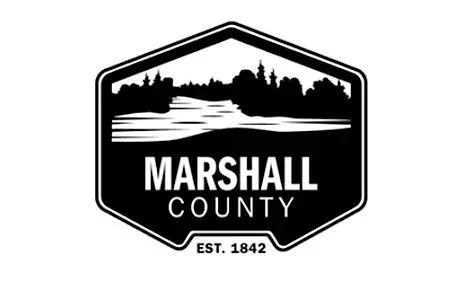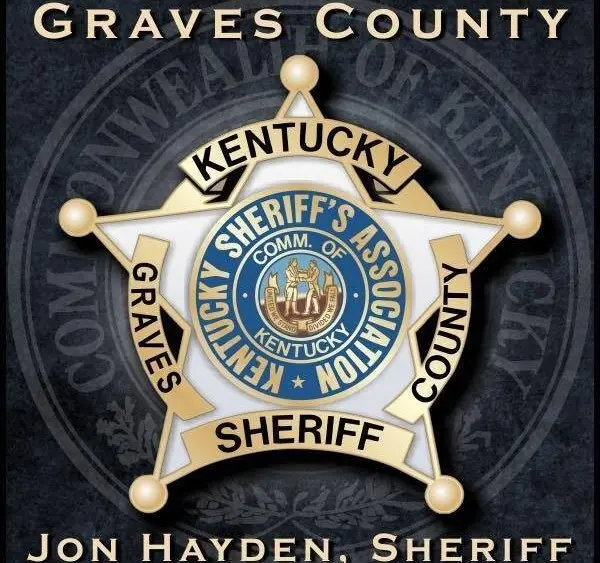Judge Java Gregory
Written by Justin D. Lamb

(Photo courtesy of the Gregory Family)
Though Judge Java Gregory only spent eight years in the County Judge’s office, his tenure in office had a significant impact on the progress of the county and his leadership helped lay the foundation for the prosperous years that Marshall County experienced following the construction of Kentucky Dam.
Java C. Gregory was born on November 1, 1887 to John L. Gregory and Rebecca A. Nichols on a small farm in the Fairdealing area of Marshall County. Gregory attended school at Salem, and after graduating, he began teaching in the one-room country schools throughout the county. His keen interest in advancing education in Marshall County led him to become involved with educational leadership and he was elected to serve a term on the Marshall County School Board. Gregory was a progressive thinker and became one of the first school board members to advocate for the consolidation of the numerous graded schools throughout the county.
On February 15, 1911, Gregory married Ludie Washburn daughter of J.W. and Martha Washburn of the Olive community. Their marriage was blessed with two children, John L. Gregory, who became a successful educator and founder of Draughon’s Business College in Paducah, and James H. Gregory who passed away at the age of 17 after a brief illness.
With economic prospects dim in the 1930s due to the Great Depression, Java Gregory found it increasingly difficult to care for his family by means of farming and teaching. In the summer of 1933, Gregory decided to make a career change and he moved to Benton and entered a twelve man race for county jailer. Throughout the campaign trail, Gregory discovered that he was natural campaigner and he crisscrossed the county asking voters to “Vote for me so I can keep your courthouse clean!” When the votes were tallied, Gregory won in a landslide. After his first term, Gregory ran for re-election in 1937 and narrowly defeated former county jailer Dewey B. Jackson.
By the time of the 1941 local elections, many voters were disgusted at the county’s illegal roadhouse problem and the corruption at the county courthouse. With the voters eager for change, Java Gregory challenged incumbent County Judge John D. Hall in the Democratic Primary. Gregory focused his campaign on restoring law and order and he accused Judge Hall of being soft on the roadhouse proprietors. In the hotly contested primary, Gregory promised to crack down on the lawlessness in the county and reminded voters that “I kept your jail clean now let me clean up your county.” Gregory’s message resonated with the voters, and after a fiery campaign, he was easily elected.
True to his campaign promises, Gregory’s first months as county judge were spent working with the sheriff’s department in shutting down the illegal roadhouses. By the summer of 1942, five major roadhouses were shut down in Gilbertsville, Calvert City, Benton, and Hardin and those convicted were given stiff penalties. By the end of the 1940s, thanks to Judge Gregory and Sheriff Walker Myers nearly every roadhouse was put out of business.
Economic development was also a top priority for Judge Gregory’s administration as the Fiscal Court worked closely with the Lower Tennessee Valley Association and the Tennessee Valley Authority in the final stages of the construction of the Kentucky Dam. Additionally, Judge Gregory lobbied state and TVA officials to lease a portion of land known as Aurora Landing for the construction of the Kentucky Lake State Park or Kenlake. The park opened on March 13, 1948 and helped boost tourism in the area for many years to come.
Eager to bring more jobs to the county, Judge Gregory and the Benton Young Men’s Progress Club (now the Marshall County Rotary Club) led the effort to persuade the General Cigar Factory which produced White Owl Cigars to locate in Benton. After months of talks with company executives, the factory opened in Benton in 1944 and employed several Marshall Countians during the 1940s. Judge Gregory also worked with Luther Draffen and leaders in Calvert City to secure Pennsalt, the first chemical plant to locate in the county. With a solid record of economic growth and clean government, Judge Gregory was re-elected easily in 1945 over former county attorney Holland D. Collie.
After a successful second term which witnessed his administration pay off a majority of the county’s burdening debt, Judge Gregory was encouraged by his supporters to run for an unprecedented third term. In December 1948, Judge Gregory announced his re-election bid, but after suffering a series of health complications, the 61-year old Gregory withdrew his candidacy in May 1949 just a few months prior to the Democratic Primary. Three candidates entered the race after Gregory’s withdrawal and Leonard Jones was ultimately elected to succeed Gregory.
After leaving the judge’s office, Gregory took a position with the Kentucky Department of Highways until a heart attack forced him to retire in 1954. He remained active in Marshall County politics, and in 1954, he was instrumental in electing World War II veteran Artelle Haltom to the County Judge’s office. Gregory spent the last years of his life running a boarding house out of his home located at 1017 Birch Street and also managing the Gregory family farm on KY Hwy 408 in Fairdealing. On Tuesday afternoon, January 6, 1959, Judge Java Gregory passed away unexpectedly after suffering a heart attack while sitting in his living room chair. He was laid to rest in the Fairdealing Cemetery.






